
Latest Coronavirus Disease COVID 19 News and Research
Academy of Finland funds projects for vaccine and drug development for COVID-19
The Academy of Finland has selected the projects to be funded from the call for research into COVID-19 vaccines and pharmaceutical development.
Zika virus during pregnancy can hamper vital collagen development in babies’ brains
Zika virus can hamper vital collagen development in the brains of babies whose mothers were infected with the disease while pregnant, new research reveals, as the search for a vaccine continues.
Airlines want flyers to feel safe, but grab bag of COVID policies adds turbulence
Tony Scott boarded an American Airlines flight May 25 from Los Angeles to Dallas. It was a trip he felt he had to take despite concerns about the coronavirus. His son, who lives in Texas, was having health problems.
Officials seek to shift resources away from policing to address black ‘public health crisis’
From Boston to San Bernardino, California, communities across the U.S. are declaring racism a public health crisis.
As COVID cases spike, California shifts its strategy
Coronavirus infections are rising so fast in Fresno County that California public health officials have identified it as one of nearly a dozen counties entering dangerous territory as economies reopen.
Early childhood vaccinations may offer protection against COVID-19
A group of Lithuanian and Kurdish scientists have raised a hypothesis that the measles, mumps, and rubella (MMR) vaccine could protect children from COVID-19.
Fearing the deadly combo of COVID-19 and cancer
Three Tuesdays each month, Katherine O'Brien straps on her face mask and journeys about half an hour by Metra rail to Northwestern University's Lurie Cancer Center.
Study assesses impact of anti-SARS-CoV-2 convalescent plasma in COVID-19 disease
The current COVID-19 pandemic is still very much active in most parts of the world. In the absence of effective antiviral drugs or vaccines, scientists are studying the use of blood plasma from convalescent COVID-19 patients, banking on its neutralizing antibody content.
COVID-19 can have indirect adverse effects on mental and physical health of children
Despite reports that children and young people may be less likely to get coronavirus disease 2019 (COVID-19) than older adults, there may be substantial indirect adverse effects of the disease on their physical and mental health, according to an analysis in CMAJ (Canadian Medical Association Journal).
Survey: Majority of college students still experience increased stress and anxiety due to COVID-19
According to a new survey by TimelyMD, a telehealth company that specializes in higher education, an overwhelming majority (85%) of college students say they continue to experience increased stress and/or anxiety as a result of COVID-19, with women reporting higher rates of coronavirus-related stress than men (93% vs. 78%).
Political elites exhibit polarization in times of current crisis
An analysis of COVID-19-related tweets issued by members of Congress from January 17 through March 31, 2020 finds that Democrats and Republicans quickly polarized along party lines in their messaging about the virus on Twitter.
Obesity and COVID-19: Cause or effect?
A new University College London study published on the preprint server medRxiv in June 2020 dissects the contribution and incidence of obesity in the ongoing COVID-19 pandemic and describes measures to mitigate the impact of lockdown measures.
Protein profile in serum reflects COVID-19 severity
The wide range of manifestations of COVID-19 has continued to baffle investigators. Now, a new study published on the preprint server medRxiv in June 2020 shows that blood proteins in COVID-19 patients change over time, and these can possibly predict or reflect the severity of disease. More, they may present targets for treatment.
Immune response variations across the COVID-19 spectrum
A new study published on the preprint server medRxiv in June 2020 describes differences in the adaptive and innate immune response in mild, moderate, and severe COVID-19. This may mean that permanent immune responses occur only in patients who recover from severe COVID-19.
Platelets may be contributing to COVID-19
The current pandemic of COVID-19 is characterized mainly by severe acute respiratory distress of the lungs, but other organ dysfunctions are also being observed, including the heart and blood vessels. Now, a new paper published on the preprint server medRxiv* in June 2020 describes the abnormal activation of platelets in this disease and the link between this phenomenon and poor outcomes for COVID-19 patients.
Researchers create a web-based COVID-19 knowledge base powered by AI
Researchers from Florida Atlantic University's College of Engineering and Computer Science, in collaboration with FAU's Schmidt College of Medicine, have received a one-year, $90,000 National Science Foundation RAPID project grant to conduct research using social networks and machine learning, facilitated by molecular genetics and viral infection, for COVID-19 modeling and risk evaluation.
A 'quick and easy' COVID-19 test developed for population-scale screening
Global endeavors to fight the Covid-19 pandemic heavily rely on accurate, fast and frequent tests for the coronavirus SARS-CoV-2 - "test, test, test", as the World Health Organization has bluntly put it.
New project aims to track coronavirus using human waste
Recent studies in the Netherlands and other places have shown that the presence of SARS-Coronavirus-2, or the novel coronavirus, can be detected in human waste.
New assay rapidly tests SARS-CoV-2 neutralization and screens antivirals
Researchers at the University of Texas Medical Branch, Galveston, have developed a new platform that can rapidly test neutralizing antibody activity against severe acute respiratory syndrome coronavirus 2 (SARS-CoV-2) and perform high-throughput screening of potential antiviral agents.
Effective neutralization of SARS-CoV-2 by synthetic nanobodies targeting the spike protein
In their recent bioRxiv paper, a multinational group of researchers reported rapid isolation and characterization of nanobodies from a synthetic library (known as sybodies) that target the receptor-binding domain (RBD) of the severe acute respiratory syndrome coronavirus 2 (SARS-CoV-2) spike protein – with a strikingly high neutralization ability.
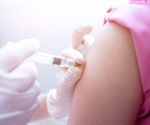
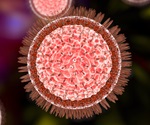


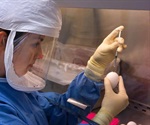

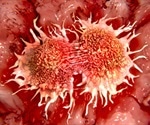
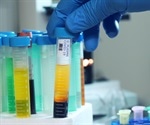


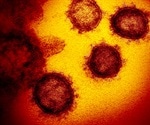
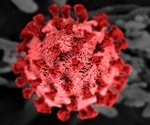
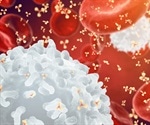
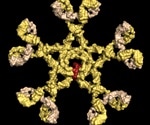
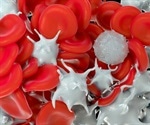
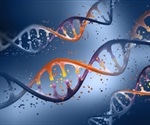
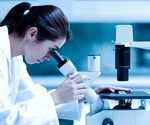
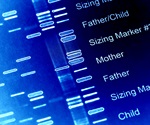
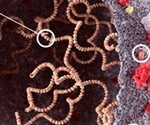
_1d6309de14bd42af8252aef0dd4199d8-150x125.jpg)
































No hay comentarios:
Publicar un comentario